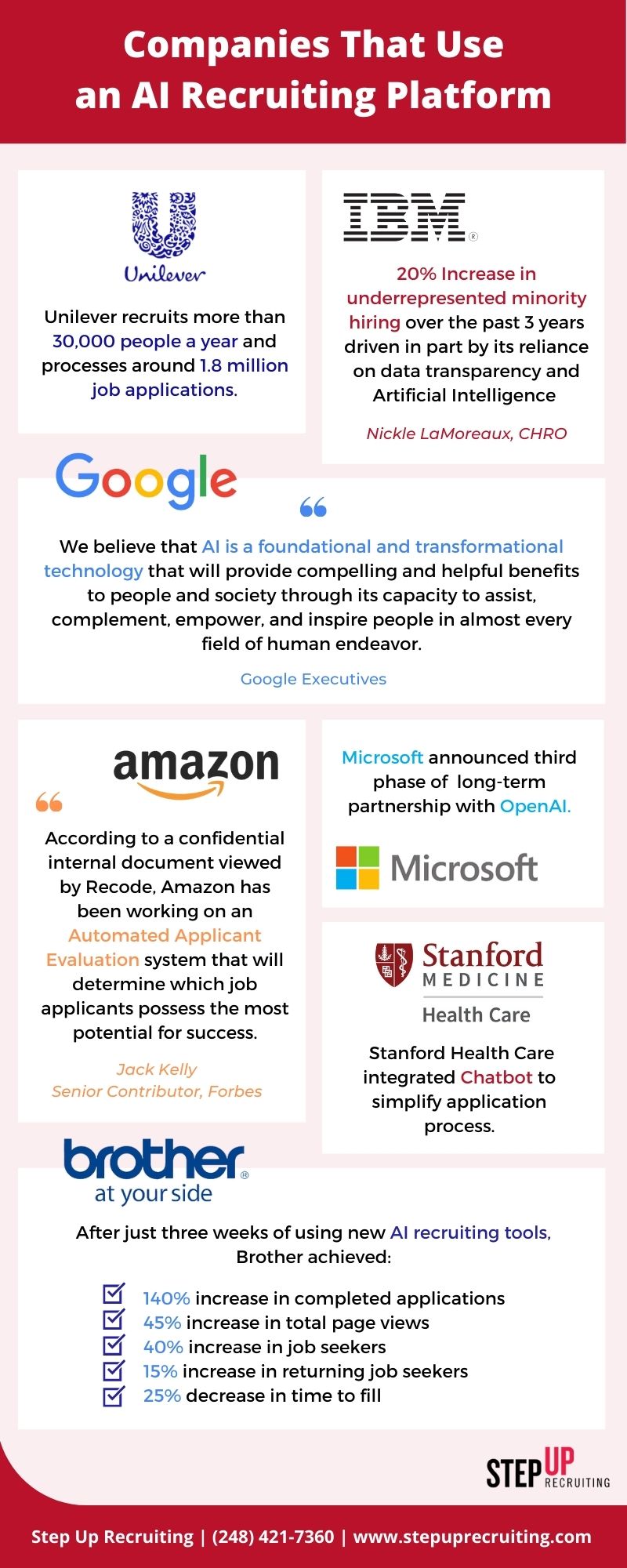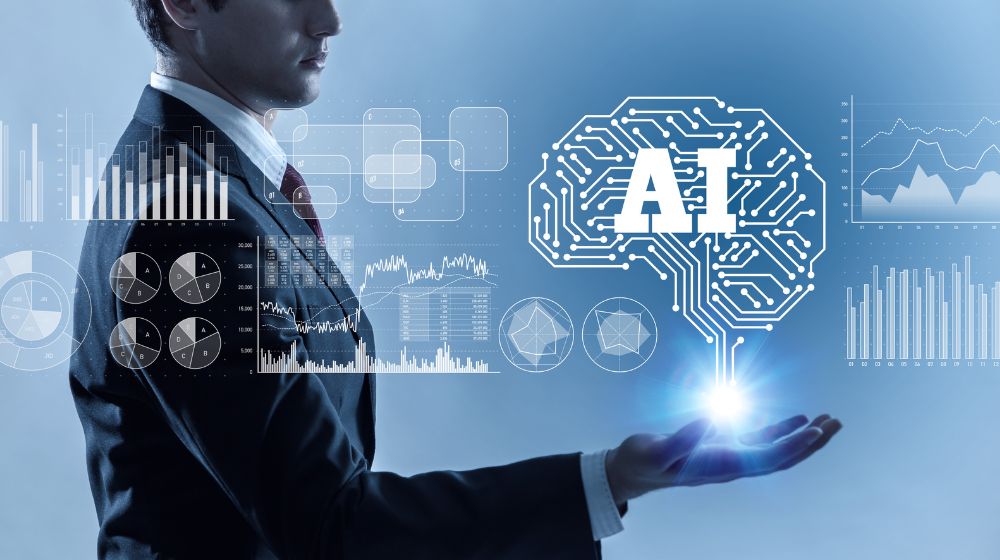AI for Recruitment Pros and Cons
That’s right, the future is now, and it’s time to take a look into AI for recruitment pros and cons. It’s not unexpected that AI (Artificial Intelligence) has reached recruitment processes. In fact, Artificial intelligence (AI) is being increasingly adopted in the recruitment process by companies of all sizes and industries. But, what does this mean for companies and candidates? Whenever a new technology comes up there’s always fear that it might bring negative outcomes with it. I’ll point out the pros and cons of AI recruitment and let you decide for yourself whether it’s a great thing or a nightmare.
Pros:
AI recruitment can help save time and money
As the saying goes, time is money. Companies are adopting AI-powered recruitment tools because they have the ability to automate repetitive and time-consuming tasks, such as screening resumes and scheduling interviews. This, in turn, can free up recruiters’ time to focus on more strategic and high-value activities, such as building relationships with candidates.
Handle volume of applications
Another pro is that AI-powered recruitment tools can help companies process a hefty number of applications quickly and efficiently. This is especially beneficial for companies with a high number of open positions.
Tools to help you prepare an interview
This is a great tool Google has made Interview Warmup to help candidates prepare their next interview for e-commerce, IT support, UX design, Data analytics, and Project management positions. Candidates can practice key questions and get insights about their answers, so that they can feel more comfortable during an interview.
To improve candidate experience
AI can improve candidate experience because it can aid recruiters to identify candidates who may be a good fit for the company. Sometimes candidates have certain skills that might be relevant for a position and that may be overlooked by recruiters.

Objectivity
Another benefit of using AI in recruitment is the ability to make more objective hiring decisions. AI-powered tools can analyze resumes and cover letters. It can also use machine learning to identify patterns and trends in candidate data. This way, candidates are chosen based on objective criteria. This is supposed to avoid choosing candidates with subjective criteria, such as physical appearance or stereotypes. Also, it can help settle indecisiveness if two recruiters have different opinions about the same candidate.
Cons:
Overlook good candidates
AI-based systems may not understand all the nuances of a candidate’s qualifications, personality, or experience. While AI can help recruiters to make a decision and hire the right candidate, it can also overlook candidates worth recruiting.
Bias in data
AI-based systems are not perfect. After all, they’re trained by humans. Therefore, if the data used to train the system is biased, the choice of candidates will be biased. In other words, if the system is trained on resumes from a particular demographic, it may be less likely to recognize qualified candidates from other demographics.
Loss of human touch
This one may be self-explanatory, but AI can make candidate experience cold and poor. Similar to when you attempt to reach a client service and the only thing you get is a machine answering and asking questions. What you really want is to talk to someone to solve your problem. Let’s admit it, it’s annoying speaking with a machine that doesn’t understand what you want. Also, candidates might experience concerns about the fairness of the process. Not seeing a human face can be demoralizing.
Legal concerns
Lastly, let’s not overlook legal concerns. Even “neutral “ AI tools may have unanticipated consequences, such as privacy issues. For example, when reviewing a candidate, AI may gather private information the candidates weren’t aware was available online.
This is why it’s advisable to work with legal experts to be on the safe side.
For or against AI for recruitment
Although AI for recruitment can make the whole hiring process easier and, arguably, fairer, there are also some risks and downsides. However, not everything is black and white. Recruiting can benefit from AI when the technology is used in conjunction with human input. This way, the process can benefit from human intuition and AI analysis and calculations. In case you’re a candidate, don’t worry. AI doesn’t have the last word in the hiring process, for the time being.
Some companies using AI for recruitment:
Google: screens resumes and assess candidate qualifications.
Unilever: screens resumes and conduct initial interviews around the world.
IBM: surface profiles of candidates who may otherwise go under the radar.
Amazon: screens resumes and conduct initial interviews with candidates.
Microsoft: screens resumes and assess candidate qualifications.
Stanford Health Care has a chatbot that has simplified the application process.
Brother International uses AI to make the recruitment process seamless to candidates.
Loreal to help candidate experience.
If you’re wondering about our recruitment process, click here.



